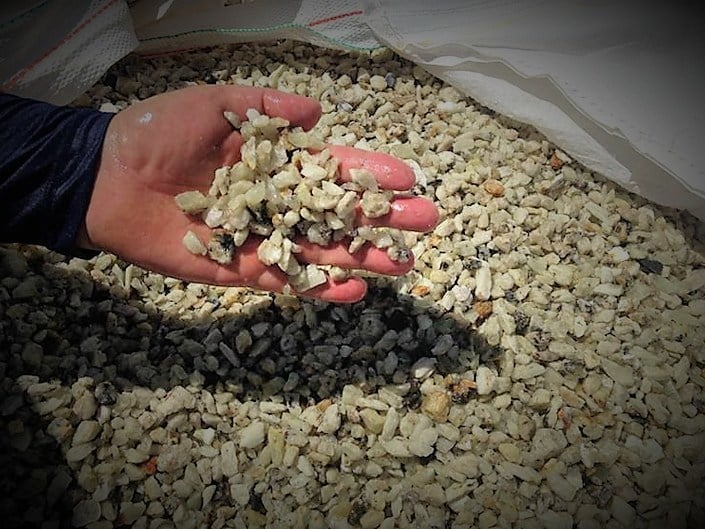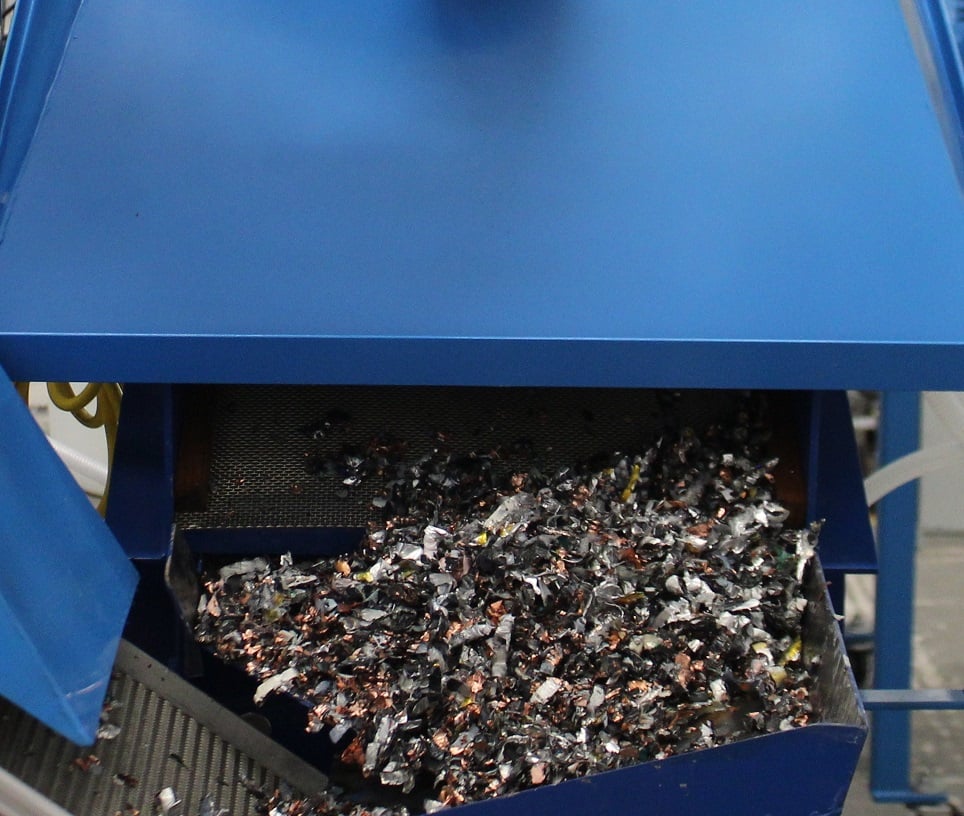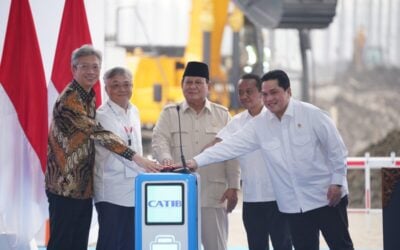
LG Energy Solution has signed a five-year supply deal for lithium hydroxide from Germany-headquartered Vulcan Energy Resources, which aims to establish carbon emissions-free extraction facilities.
This marks the first time LG Energy Solution has signed a supply agreement with an Europe-based lithium producer, the company said in a release sent to Energy-Storage.news today. The five-year deal for 41,000 to 50,000 metric tonnes of battery grade lithium chemicals has an option to be extended for a further five years.
Enjoy 12 months of exclusive analysis
- Regular insight and analysis of the industry’s biggest developments
- In-depth interviews with the industry’s leading figures
- Annual digital subscription to the PV Tech Power journal
- Discounts on Solar Media’s portfolio of events, in-person and virtual
As reported by Energy-Storage.news in July 2020, Vulcan Energy Resources wants to combine geothermal renewable energy with Europe’s largest lithium resource, in the Upper Rhine Rift region of Germany, at its project, ‘Zero Carbon Lithium’.
The startup intends to pump lithium-rich brine to surface level and then use the renewable heat to extract the metal. Excess renewable energy could be fed back into the grid. The project is being supported by investors including EIT InnoEnergy, the European Institute of Innovation & Technology’s accelerator programme backed by the European Union (EU).
LG Energy Solution and Vulcan signed a binding term sheet last July and their newly signed off-take agreement is awaiting the execution of a Definitive Agreement. It remains conditional on Vulcan securing project finance, constructing and commissioning its plants and meeting product specifications within an agreed timeframe.
Commercial supply will commence from the beginning of 2025.
One the other side of the Atlantic, developer Controlled Thermal Resources (CTR) is building a geothermal brine lithium extraction facility in California’s highly-saline Salton Sea. CTR’s Hell’s Kitchen Lithium and Power project will be the Salton Sea’s first new geothermal plant in over a decade.
The first 50MW of geothermal power is expected to come online at Hell’s Kitchen in late 2023 and around 20,000 tonnes of lithium hydroxide will be produced in 2024, according to CTR.
The announcement with Vulcan Energy Resources is likely to cover demand for electric vehicle (EV) batteries, with LG Energy Solution pointing out lithium hydroxide’s usefulness in pairing with nickel in the anodes of high density batteries of the type used in EVs.
The news follows the battery storage company floating its IPO earlier this month, raising US$10.8 billion in what was reported by Reuters news agency to be South Korea’s biggest IPO to date. As reported by Energy-Storage.news, the company plans to use proceeds to grow its manufacturing capacity significantly in Europe, the Americas and Asia.
It also follows LG Energy Solution brokering a number of materials off-take deals with an emphasis on ESG: in December together with LG Chem, the company invested in lithium battery recycler Li-Cycle in addition to signing a deal for recycled nickel.
In October LG Energy Solution signed a six-year lithium deal for up to 100,000 tonnes per year with another startup, Canada-headquartered Sigma Lithium, which wants to achieve net zero emissions status by 2024 from its lithium concentrate facility in Brazil.
At that time, Sean Shaw, supply chain expert with industry consultancy Clean Energy Associates told Energy-Storage.news that the Sigma Lithium deal held significance for the wider industry on three major fronts: in terms of its magnitude, in terms of consolidation of lithium supply by a major energy storage vendor and for its focus on sustainability.
In a comment today, LG Energy Solution procurement department senior VP Dong Soo Kim said the company is aiming to diversify its supply chain and “strengthen its competitiveness in the ESG sector,” through the deal with Vulcan.
“LGES promises to solidify and broaden its steady supply of raw materials in case of potential supply disruptions,” Dong Soo Kim said.
Recycler Li-Cycle opening Norway plant

In related news, Li-Cycle has formed a joint venture (JV) to construct a commercial lithium-ion battery recycling facility in Norway, northern Europe.
Demand stems largely from the country’s already-booming EV market and a government commitment to phasing out internal combustion engine car sales by April this year, Li-Cycle said.
Li-Cycle, which listed on the New York Stock Exchange (NYSE) last year, has partnered with two Norwegian companies in its JV: battery manufacturing startup Morrow Batteries, and ECO STOR, an energy storage system manufacturer which uses second-life EV batteries to create residential, industrial and grid-scale battery energy storage systems (BESS).
Expected to be operational in early 2023, it will be Li-Cycle’s first facility outside North America and would be capable of processing 10,000 tonnes of batteries annually, including manufacturing scrap, EV batteries and BESS.
The recycler operates ‘Hub’ and ‘Spoke’ facilities, with Spokes creating the ‘black mass’ intermediate product from end-of-life batteries and scrap, and Hubs then creating new battery grade materials from that black mass.
The Norway plant will be a Spoke. Li-Cycle also said last week that it will build its sixth North American Spoke plant in Ohio, on the site of a battery gigafactory under construction by Ultim Cells, itself a JV between carmaker General Motors (GM) and LG Energy Solutions.
By 2025, Li-Cycle aims to have at least 100,000 tonnes, or about 20GWh, of lithium battery equivalent processing Spoke facilities and 220,000 tonnes of Hub processing capacity, around 44GWh, worldwide.
In reporting its results for the financial year ending 31 October 2021, the company said its revenues for the full year were US$7.4 million, an 831% jump from its 2020 fiscal year. The company was pre-revenue prior to 2020 when its commercial operations began.
Earlier this month, another recycling specialist, Battery Resourcers, said it will open North America’s largest single-site lithium battery recycling plant this August. The company, which has changed its name and brand to Ascend Elements since that announcement, will open the plant in Georgia, US.






